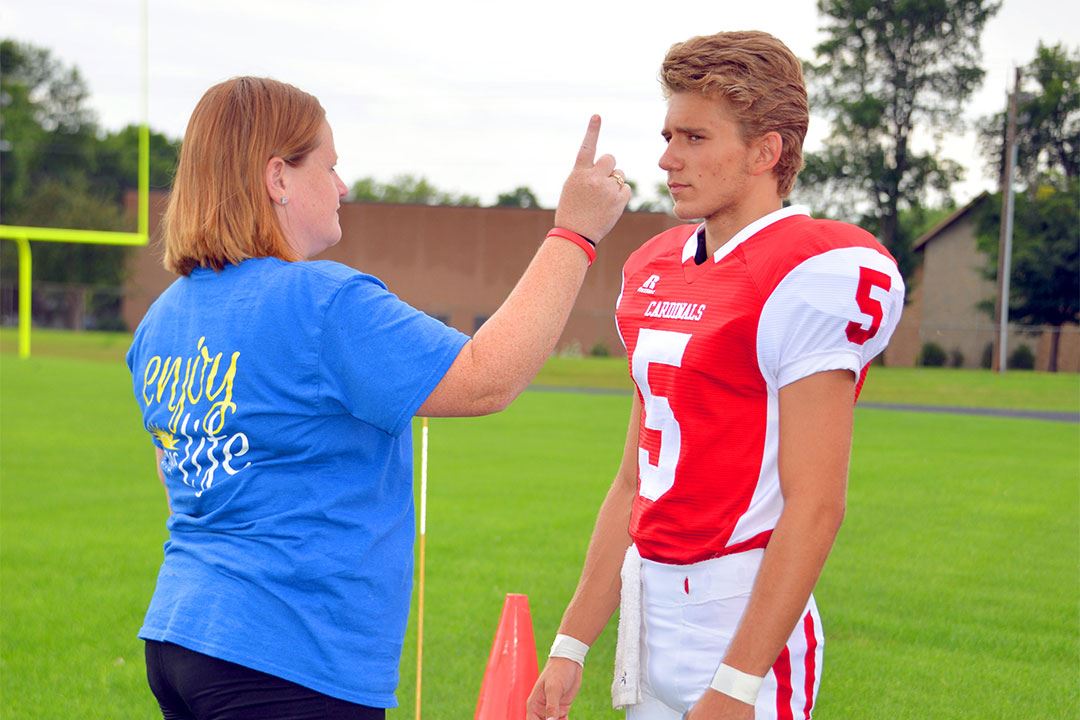The Truth about Concussions
Typically, when you get injured, the symptoms you experience are obvious: bleeding, bruising, swelling among other visible indicators. But what happens when you injure your brain? The symptoms you experience aren't nearly as noticeable, yet can be far more dangerous.
When you hit your head or your head gets whipped, it is important to know what your brain is telling you. A concussion is caused by an impact to the head or severe whiplash causing a mild traumatic brain injury. The signs of concussion can vary from injury to injury and may not always appear right away. Even if you’ve had a concussion before, you may not experience the same signs or symptoms you had the last time.
Often times the symptoms of concussion go unrecognized or sufferers fail to admit they are experiencing problems. Here are some signs or symptoms that may help you identify if you or a loved one may have a concussion.
- Thinking/Mood: Concussion suffers often feel as though they are in a fog. They have difficulties thinking clearly and struggle to concentrate on normal tasks. Remembering new information may also become challenging, leaving the sufferer confused and in a slowed state.
- Physical: The physical effects of a concussion make daily life problematic. The symptoms range from headaches, fuzzy and blurred vision, nausea, sensitivity to light and noise, dizziness or loss of balance and lack of energy.
- Emotional/Mood: A person who experiences a concussion moves through a range of emotions which are irregular from their normal mood. This can come in the form of irritability, sadness, nervousness and anxiety. In general, those individuals with concussions show more emotion than they would normally.
- Sleep: Concussion patients can be sleeping much more or less than usual but both tend to have a more difficult time falling asleep.
If you or a loved one is experiencing these symptoms after hitting your head, it is important to be properly tested and placed into a recovery program. Depending on the severity of the concussion, symptoms may last for days, weeks or months. Make sure you are taking care of your brain!
Learn more about recognizing and preventing concussions: Concussion Care
